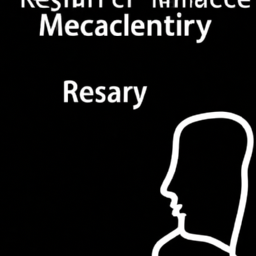HR Leaders Express Concerns About the Future of Generative AI
As the world of work continues to evolve, HR leaders are increasingly looking towards new technologies to help them stay ahead of the curve. One of the most recently emerging technologies is generative artificial intelligence (AI). This technology is revolutionizing the way we think about the future of work and is offering many exciting opportunities for HR leaders to take advantage of. But, alongside these opportunities come some very real concerns.
Generative AI has the potential to transform the way work gets done, allowing organizations to shift away from traditional methods of problem-solving and instead leverage AI to generate new solutions. This technology can be used to create new products and services, automate processes, and help teams become more agile and responsive to change.
However, the increased reliance on AI can be a double-edged sword. The technology can be used to automate mundane tasks, which can free up resources and allow HR leaders to focus on more strategic tasks. But, it can also lead to a decrease in the need for human labor, thus reducing job opportunities.
At the same time, the use of generative AI can also lead to a number of ethical concerns. For example, the use of AI to automate certain decisions may have a direct effect on employee performance and job security, with some employees potentially being replaced by the technology. Additionally, there is the potential for AI to mimic existing biases in decisions, leading to unfair or discriminatory outcomes.
Finally, there is the risk that AI could become too powerful, leading to a situation in which organizations become overly reliant on the technology and lose sight of the importance of human engagement in decision-making. In this scenario, the AI would be making decisions without human input, potentially leading to decisions that are not reflective of the organization’s values or goals.
As HR leaders consider the potential of generative AI, they must also take into account the potential risks associated with its use. It is therefore essential that organizations consider the ethical implications of using the technology, ensure that it is used responsibly, and take steps to mitigate any potential risks.
One way to do this is to ensure that the implementation of AI is carried out in partnership with experienced HR professionals. This will ensure that the AI is implemented in a way that takes into account the organization’s values and goals, and that any decisions made by the technology are in line with these considerations. Additionally, it is important that organizations use the technology responsibly, and that any decisions made by the AI are closely monitored and assessed.
Another way to ensure that AI is used responsibly is to ensure that the technology is transparent. This means that organizations must be open and honest about how the technology is being used, and that employees understand the implications of the AI’s decisions. This will ensure that any potential ethical issues are addressed in a timely manner, and that employees can trust that the decisions being made by the AI are the right ones.
Finally, organizations must be willing to listen to feedback from employees about the use of AI. This will ensure that any ethical concerns are addressed and that the technology is used in a way that is beneficial to both the organization and its employees.
At the end of the day, the use of generative AI presents a number of exciting opportunities for HR leaders, but it also carries some very real risks. It is therefore essential that organizations take steps to ensure that the technology is implemented responsibly and that its use is monitored and assessed on a regular basis. By doing this, HR leaders can ensure that the use of AI is beneficial to both the organization and its employees, and that any ethical issues are addressed in a timely manner.



